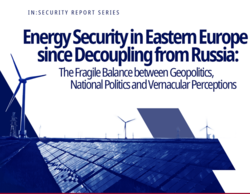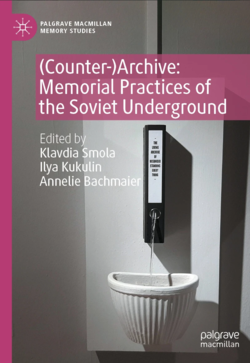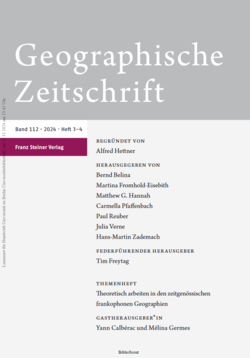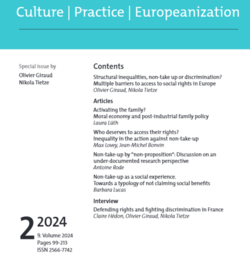Publications

Les Enfants de Georg Simmel
November 22, 2024 Edition: Les éditions CircéISBN: 978-2-84242-533-3
Georg Simmel (1858-1918) fut un des inventeurs de la sociologie, mais aussi un philosophe original, un véritable personnage du Berlin 1900, ouvert aux arts et à toutes les manifestations de la modernité. Enseignant (sans solde) à l’Université de Berlin pendant des décennies, il exerça une influence diffuse considérable. Un public varié se pressait à ses cours, venu de toute part. On considérait être admis dans ses privatissimi comme un rare privilège. Solitaire, sans ancrage fort dans l’institution, sans « école », il sombra dans l’oubli après sa mort et ne fut redécouvert que tardivement.
Mais ses idées continuaient d’inspirer une quantité de ses « enfants » spirituels. Le présent ouvrage en rassemble une large palette sous forme d’une photo de groupe qui réservera bien des surprises.
D’Union soviétique aux Etats-Unis, des rangs de la philosophie à ceux de la sociologie, des historiens de l’art aux écrivains, journalistes, à plusieurs personnages inclassables, une histoire souterraine de la vie intellectuelle du XXe siècle se dessine à partir de Simmel.
Sous la direction de Denis Thouard
Les auteurs : Olivier Agard (Paris) ; Matthieu Amat (Lausanne) ; Wolfgang Asholt (Berlin) ; Jacques-Olivier Bйgot (Rennes) ; Dominique Bourel (Jérusalem) ; Veronica Ciantelli (Paris) ; Daniel Cefai (Paris) ; Franck Fischbach (Paris) ; Gregor Fitzi (Florence) ; Mildred Galland-Szymkowiak (Paris) ; Jean-Claude Gens (Dijon) ; Gerald Hartung (Wuppertal) ; Servanne Jollivet (Paris) ; Nicole C. Karafyllis (Brunswick) ; Sarah Kiani (Bвle) ; Rainer Maria Kiesow (Paris) ; Christoph Kцnig (OsnabrÑŒck) ; Camille Laclau Saint Guily (Paris) ; Françoise Lartillot (Metz) ; Jacques Le Rider (Paris) ; Alessia J. Magliacane (Paris) ; Christian Papilloud (Halle) ; Nadia Podzemskaia (Paris) ; Gérard Raulet (Paris) ; Philipp Redl (Freiburg-in-Breisgau) ; Silvia Richter (Berlin) ; Davide Ruggieri (Bologne) ; Laure Schapper (Paris) ; Maria Stavrinaki (Paris) ; Denis Thouard (Berlin) ; Serguei Tchougonnikov (Dijon) ; Monika Tokarzewska (Torun) ; Caterina Zanfi (Paris).

Energy Security in Eastern Europe since Decoupling from Russia: The Fragile Balance between Geopolitics, National Politics and Vernacular Perceptions, KonKoop In:Security Report 2/2024
November 07, 2024
Sophie Lambroschini
, Nadja Douglas, Michael LaBelle, Vineta Kleinberga, Ana Otilia Nuțu, Andrian Prokip
Culture, Practice & Europeanization -Special issue on barriers to access to social rights
November 01, 2024
Olivier Lipari Giraud
,
Nikola Tietze
Edition: Special issue, volume 9
ISBN: 2566-7742
In the tradition of West-European welfare states, social policies are directed at protecting individuals against social risks such as unemployment, illness, or old age. In doing so, welfare state arrangements have an important effect on compensating for socio-economic inequalities, while simultaneously producing structural stratification (Esping-Andersen, 1998). The inequalities addressed by the welfare state are, however, always multidimensional. For instance, gender has for long been identified as a source of inequalities. Labour market regulations and social security systems have reinforced the male breadwinner model in most European countries (Lewis, 1992; Verloo, 2006), which has led to a higher degree of inequality between men and women. Welfare states may focus on one specific type of inequality, such as amongst socioeconomic groups (defined by professions, regions, income groups, etc.). The established welfare regimes ignore, however, other structures of inequality such as gender. Most of the time, they also overlook obstacles that can be traced back to specific vulnerabilities, such as migrants’ problem with residence permits or discrimination against people with disabilities, that eventually generate non-take-up of social benefits.
The present issue of Culture, Practice and Europeanization focusses on the barriers that socio-economic inequalities, non-take up, and discrimination constitute for access to social rights and benefits, centring attention on the process of making social policy and receiving social benefits in different national and welfare-state contexts. We aim to identify the elements and configurations that create and uphold these barriers as social policy is framed, implemented, and adopted by beneficiaries (Béland, Campbell & Weaver, 2022; Rein & Schön, 1996; Streeck & Thelen, 2005).

Sound Archives From the Margins of the Soviet: Recording Gypsy Tales and Songs in the Late Soviet Union
October 05, 2024 Artikel aus SammelbandEdition: . In: Smola, K., Kukulin, I., Bachmaier, A. (eds) (Counter-)Archive: Memorial Practices of the Soviet Underground. Palgrave Macmillan Memory Studies. Palgrave Macmillan
ISBN: 978-3-031-67132-6
The chapter recounts how two Muscovites, writer and poet Efim Druts (1937–2018) and bard Aleksei Gessler (1945–1998), decided to record Romani tales, songs and oral memories in the Brezhnevian USSR, at a time when Gypsy folklore was rediscovered and reintegrated into official culture. Perestroika and the collapse of the Soviet Union made it possible to clarify the sociological context of these sound archives, notably through the use of black literature characteristic of post-Soviet Russia in the 1990s. Druts and Gessler thus belong to the very small circle of specialists in the Gypsy world, which developed on the bangs of the academic world in the Soviet Union and, more broadly, in Eastern Europe, and documented the complex sociological universe of populations forced into sedentarization and constituted as objects of cultural promotion while in reality retaining a specific way of life.
Nazan Maksudyan & Hilal Alkan (2024): Exile and fieldwork as liminal conditions: Leonore Kosswig’s life and research in Turkey, 1937–1973
October 01, 2024
Nazan Maksudyan
, Hilal Alkan
Edition: Women's History Review
https://doi.org/10.1080/09612025.2024.2406599
This paper looks into the life and ethnographic work of Leonore Kosswig (1904–1973), who lived in Turkey as a German exile from 1937 until her death in 1973. While her husband, Curt Kosswig was invited to Istanbul University as a full professor, Leonore had no institutional affiliation. However, she traveled with her husband around Anatolia and joined his fieldwork, during which she developed an interest in local customs and the daily life of villagers and nomadic tribes. Leonore decided to stay in Turkey after Curt’s return to Germany in 1955. Her excellent command of Turkish and former experience in fieldwork allowed her to become one of the first women to conduct ethnographic research in Turkey. Until her death, she pursued several pioneering research projects on wedding customs, tablet weaving, nomadic life, and ownership signs. Relying on her research publications and ego-documents, we employ a biographical approach to articulate upon her liminal existence in exile. In dialogue with research on twentieth century forced migrations that engage with the concepts of in-betweenness and liminality, we address Leonore’s liminal existences on the edge of two worlds on numerous planes. In particular, we argue that Kosswig’s liminality was reflected on her exilic existence in Istanbul as a foreign woman; her ethnographic research agenda into liminal geographic locations, marginalized communities, and disappearing cultural artifacts; and her gendered navigation of foreignness and nativeness.

Geographische Zeitschrift Band 112, September 2024, Heft 3-4 Erscheinungsdatum: 26.09.2024
September 26, 2024
Yann Calbérac
, Mélina Germes

A Radical Concern: Advocacy for an Ingenious Anthropology of Music
September 24, 2024 AnthropologieEdition: New Diversities
https://newdiversities.mmg.mpg.de/?page_id=22776
https://hal.science/hal-04708375
In three steps, this paper suggests erecting ingenuity as a tool of investigation: Ethnomusicology in migration contexts, Strategies and tactics, Categorical assignments. Ingenuity is not to be understood as a gap in epistemic devices but as an instrument that unleashes the gaze, as a tool that aims to ensure the accuracy of observation reports, and especially as a generator of indignation that may take us out of our “comfort zone.” A comfort zone is to be understood here as a knowledge configuration that encourages us to think from established categories that assign people to the place provided for them by existing devices, forgetting to take into account the ways these categories are instituted. This leads us to pay attention to the “categorical service” that ethnomusicology’s conceptual frameworks provide to our ways of thinking.

France, Allemagne, Afrique. Représentations, transferts, relations / Frankreich, Deutschland, Afrika. Repräsentationen, Transfers, Beziehungen
September 04, 2024
Emmanuel Droit
,
Romain Tiquet
,
Mouhamadou Moustapha Sow
,
Silke Mende
, Anne Kwaschik (Hrsg.)
Schriftenreihe des deutsch-französischen Historikerkomitees, Band 22
Edition: Franz Steiner Verlag
Collection: Schriftenreihe des deutsch-französischen Historikerkomitees, Band 22
ISBN: 9783515137027
Seit der Aufklärung wurde die Geschichte Afrikas meist mithilfe von Kategorien und Begriffen aus dem Zettelkatalog der europäischen ‚Kolonialbibliothek‘ erzählt. Sie fungierte auf vielfältige Weise als Europas Projektionsfläche eines außereuropäischen „Anderen", der diskriminiert oder unterdrückt wurde. Die Autorinnen und Autoren nehmen die europäisch-afrikanische Beziehungsgeschichte neu in den Blick, indem sie nach deutsch-französisch-afrikanischen Transfers und Verflechtungen fragen.
Die Beiträge beleuchten die Beziehungen von europäischen und afrikanischen Akteurinnen und Akteuren auf lokaler, nationaler und internationaler Ebene zwischen Dakar, dem Kilimandscharo, Berlin und Straßburg. Die deutsch-französische Perspektive konturiert darüber hinaus aktuelle Fragen der Geschichtspolitik (u.a. Fragen der Erinnerungskultur und Restitutionsdebatten) neu und verdeutlicht Unterschiede und Gemeinsamkeiten in den Entwicklungen und Auseinandersetzungen. Der Band bietet eine breite, interdisziplinär inspirierte Diskussion, die strukturelle Bedingungen ebenso berücksichtigt wie Praktiken und Repräsentationen.

2/2023: Jüdische Sprachkritik nach dem Holocaust
August 30, 2024 Edition: Zeithistorische Forschungen Studies in Contemporary Historyhttps://zeithistorische-forschungen.de/2-2023
Herausgeber:innen: Nicolas Berg, Elisabeth Gallas, Aurélia Kalisky
